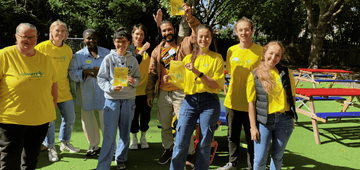RSPH is warning against complacency in the fight to maintain the successes of the UK’s vaccination programme, in the wake of new findings from Unicef that 527,000 children in the UK missed out on the first dose of the measles vaccine between 2010 and 2017. According to analysis released today by Unicef, the UK has the third highest number of children unvaccinated for measles among all high-income countries, behind France and the United States.
A report by RSPH earlier this year, Moving the Needle, found that while the public have high levels of trust in the immunisation advice of healthcare professionals, there is also some cause for concern around public access to and attitudes towards vaccines. For example, two in five (41%) parents have been exposed to negative messages about vaccines on social media, with this figure rising to one in two among parents of under 5s. Earlier this month, the Department for Digital, Culture, Media & Sport and the Home Office announced plans for a new regulator for social media companies to prevent online harms. RSPH believes this regulator should play a crucial role in the fight against harmful anti-vaccination messages online.
The report identified a number of other strategies to ensure vaccine uptake remains high, including:
- Improving the convenience in location and timing of vaccination appointments.
- Implementing reminders for parents across the health system regarding their child’s vaccination appointment.
- A positive public messaging campaign from the Government on the value of vaccines.
Shirley Cramer, CBE, Chief Executive of RSPH said: “In the UK we can be proud of what is overall a world-leading vaccination programme, but the findings of this report hammer home once again that we cannot afford to be complacent when it comes to immunisation.
“A positive finding from our recent report was that the public’s trust in our doctors and nurses is as high as ever. This puts health professionals in a great position to speak loud and proud about the safety and value of vaccines, and dispel any misplaced fears that parents might have.
“But talking positively about vaccines alone is not enough. We also need a Government campaign that takes seriously the proliferation of damaging anti-vaccination messages on social media, and acts to ensure our immunisation programme remains among the best in the world.”



